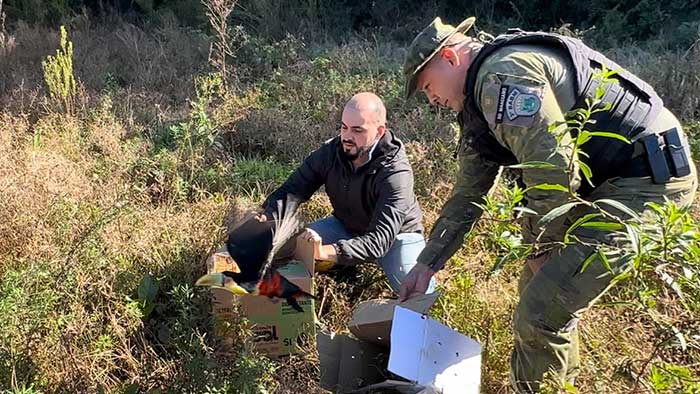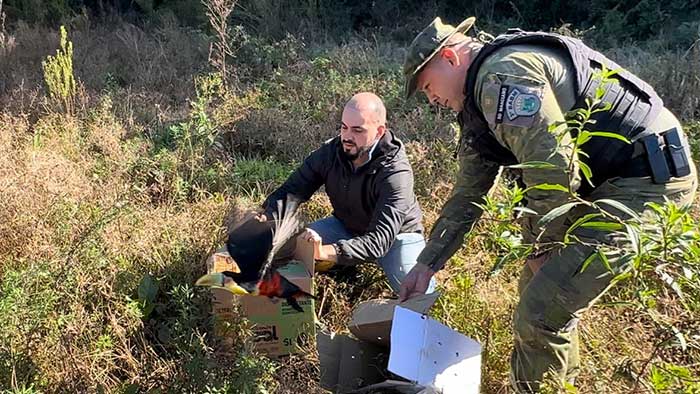
The Zoo of the University of Caxias do Sul (UCS) recently returned three species of animals to the wild. In total, two coatis (Nasua nasua), three green-billed toucans (Ramphastos dicolorus) and four white-eared opossums (Didelphis albiventris) were welcomed and received treatment by the Zoo and Veterinary Hospital Institute teams ( IHVET) of the University. Once recovered, they were released into their habitats, in native forest, within the municipality, in a region far from human interference.
The animals arrived at the Zoo in February this year, orphans or victims of trauma. Professor and veterinarian responsible for the UCS Zoo, Gabriel Guerreiro Fiamenghi, explains that when they are treated, a protocol is established to assess their health conditions, the need and type of treatment, in addition to all care compatible with the age group of each animal. As they progress in treatment, the species are isolated – in a location corresponding to their habitats – with as little human intervention as possible, so that they maintain their wild nature and can be released safely.
Fiamenghi highlights the importance of preserving nature and environmental education at all stages of life. It warns of species that have already become extinct due to undue human action and highlights the finiteness of natural resources, further increasing the need to respect biodiversity.







